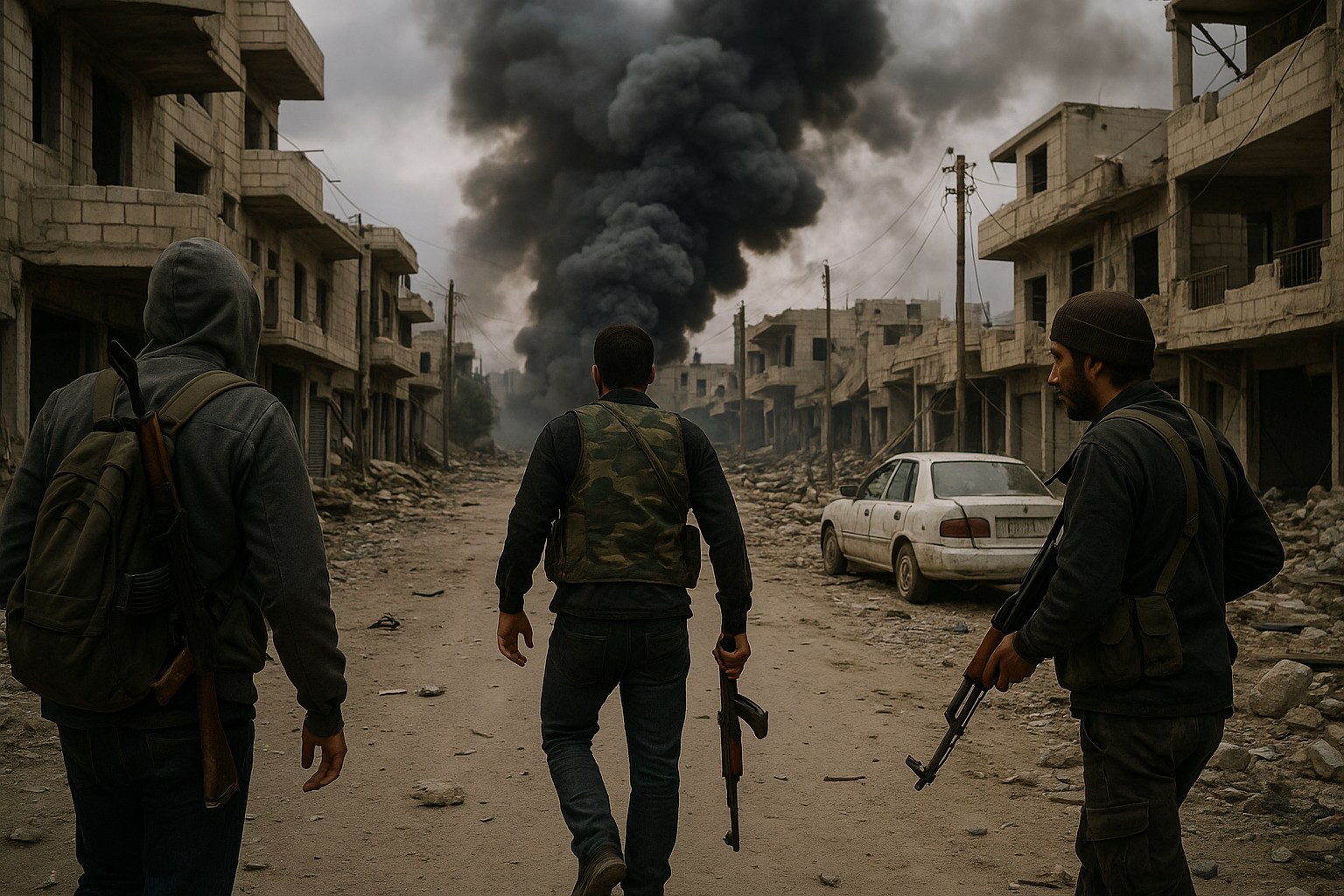Violence in Damascus Countryside and Suweyda Highlights Syria’s Fragile Peace Prospects
The Israeli government’s expansion of its occupation in the Syrian Golan Heights and actions perceived as attempts to exacerbate communal divisions are cited as destabilizing factors.

The United Nations Commission of Inquiry on Syria issued a grave warning following a disturbing surge in violence in Syria’s Damascus countryside and the southern Suweyda governorate. The clashes, many marked by sectarian undertones, have led to the reported deaths of over 100 individuals, including civilians, further threatening Syria's delicate path to sustainable peace and reconciliation.
Escalating Violence and Sectarian Tensions
The recent outbreak of hostilities comes amid a volatile backdrop of longstanding sectarian divisions and political unrest. Armed confrontations between local militias, security forces, and unidentified actors have rapidly intensified in the Damascus countryside and spread to Suweyda—a predominantly Druze region that had remained relatively stable in recent years.
According to multiple sources, some of the clashes have taken place in densely populated areas, placing civilians at considerable risk. Eyewitness accounts suggest the use of heavy weaponry in residential zones, leading to mass displacement and destruction of homes and infrastructure. Many families have reportedly fled in search of safety, raising fresh humanitarian concerns.
Impact of Israeli Airstrikes
Compounding the crisis, Israeli airstrikes continue across various parts of Syria. These strikes, purportedly aimed at Iran-linked targets and weapons convoys, have not only inflicted physical destruction but have also sown further fear and instability. The Commission cautioned that these external military actions risk intensifying Syria’s fragmentation and worsening the plight of civilians.
The Israeli government’s expansion of its occupation in the Syrian Golan Heights and actions perceived as attempts to exacerbate communal divisions are cited as destabilizing factors. The UN body emphasized that the trajectory of such interventions has historically led to escalated violence and broader regional destabilization.
Role of Hate Speech and Social Media
Adding fuel to the fire is the proliferation of hate speech and discriminatory incitement, particularly across social media platforms. The spread of inflammatory rhetoric has contributed to rising tensions between communities, undermining already fragile efforts to promote coexistence and national reconciliation.
The Commission called on technology companies and local stakeholders to take urgent steps to curtail the dissemination of divisive content and warned of its potential to incite further acts of violence.
Humanitarian and Legal Concerns
While local reports indicate that tentative agreements have been brokered between Suweyda’s community leaders and the Damascus authorities to halt the violence, the Commission reminded all parties that the interim Syrian government bears full responsibility for the protection of civilians within its jurisdiction.
Urgent calls were made for the opening of humanitarian corridors to allow aid access to affected regions. With displaced populations growing, the need for medical assistance, food, and shelter is critical. The UN also reiterated that further displacement must be avoided at all costs.
Justice, Accountability, and the Rule of Law
Impunity for grave violations of international humanitarian and human rights law has been a central feature of Syria’s protracted conflict. The Commission stressed that without genuine accountability, Syria will remain trapped in cycles of violence and mistrust.
It urged the Syrian interim government to launch immediate, independent, and transparent investigations into the recent violations. Holding perpetrators accountable through credible legal processes, consistent with Syrian law and international standards, is seen as vital to rebuilding public trust and fostering long-term peace.
Need for Immediate De-escalation
The violence in Suweyda and the Damascus countryside follows earlier unrest in Syria’s coastal areas this past March, highlighting the broader insecurity plaguing the country. The Commission warned that without coordinated efforts to de-escalate tensions and promote inclusive dialogue, Syria risks descending further into chaos.
As the situation continues to evolve, the Commission’s investigations are ongoing, with a particular focus on documenting violations, protecting witnesses, and supporting accountability measures.
The international community is urged to recommit to supporting a rights-based resolution to the Syrian crisis—one that centers on civilian protection, reconciliation, and the rule of law.










